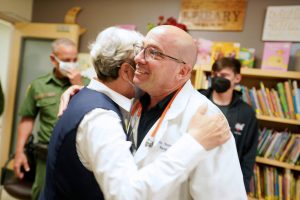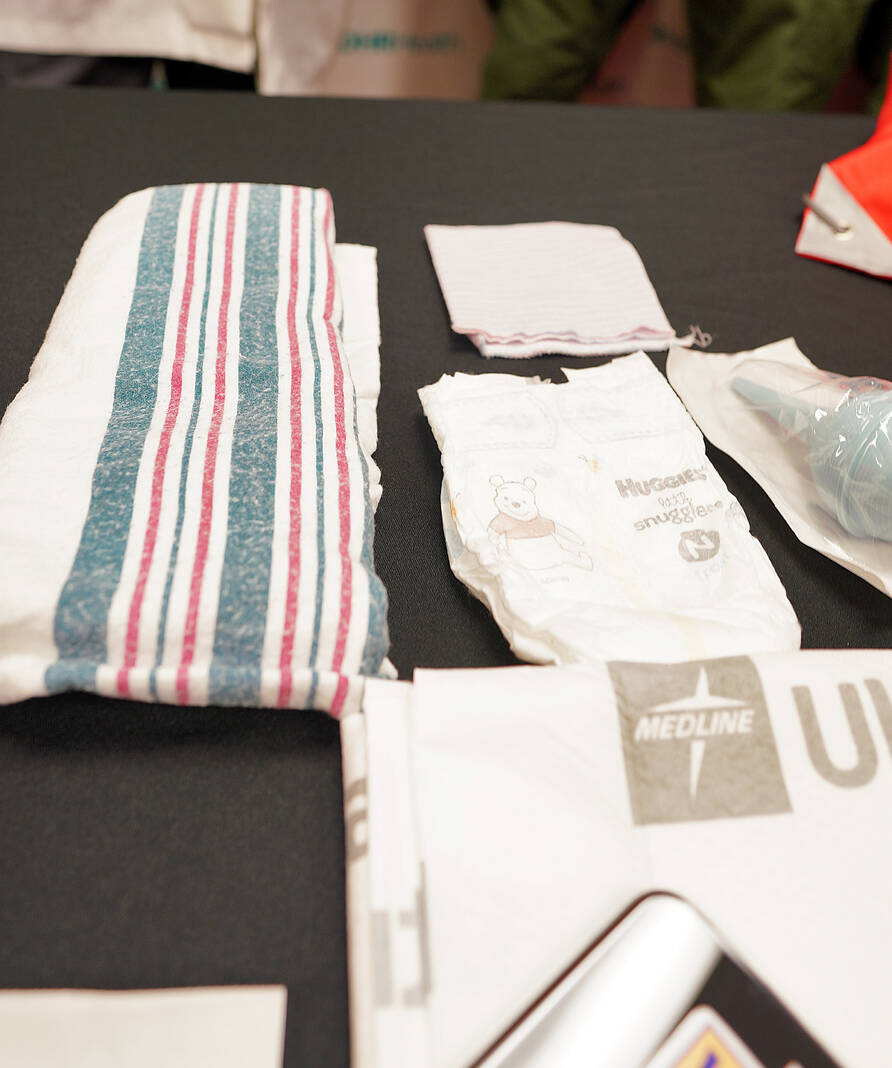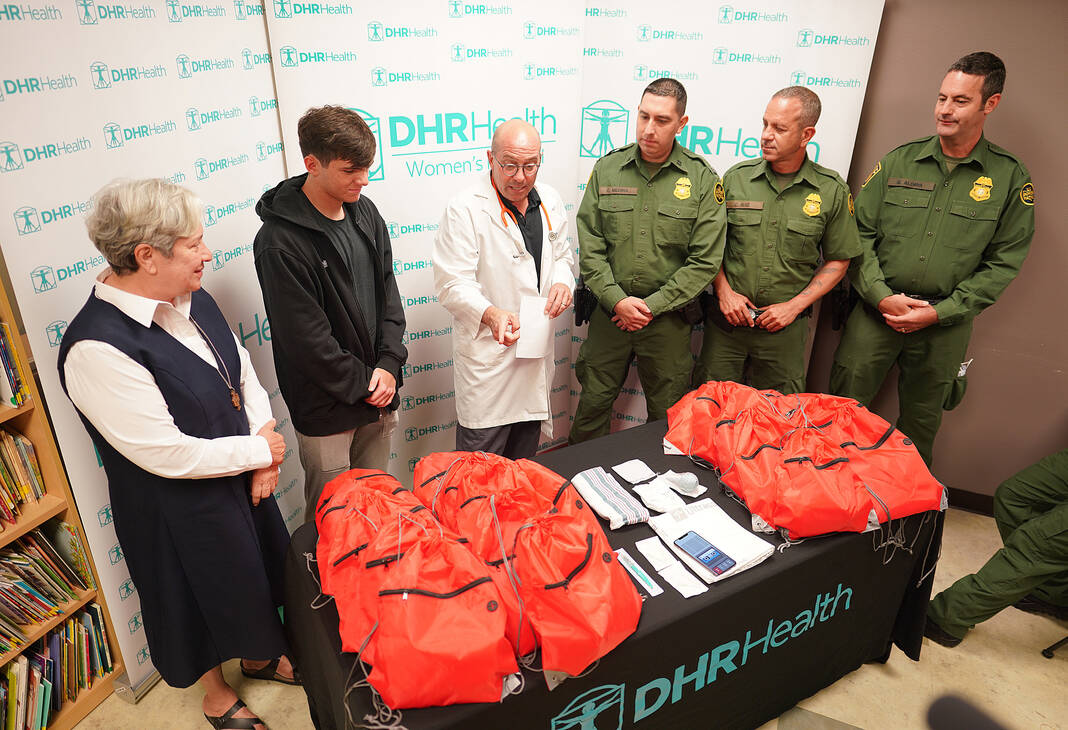
EDINBURG — In the hallway of the women’s hospital here, Dr. Dynio Honrubia and Sister Norma Pimentel shared a friendly embrace Tuesday morning as they celebrated the beginning of their newest collaboration with the U.S. Border Patrol: teaching agents how to deliver babies.
“This is a success story,” Honrubia said as he held Pimentel, moments after educating and equipping federal authorities with childbirth kits.
It was clear that the collab with border agents meant more to them than a mere training session, but as an investment into humanitarianism.
Inside Theo’s Library at DHR Health Women’s Hospital in Edinburg, which features a shelf filled with books donning Disney princesses on the covers, agents joined Pimentel and Honrubia to pick up emergency care kits for mothers who go into labor when crossing into the U.S.
Honrubia, the medical director of the newborn intensive care unit (NICU) at DHR Health Women’s Hospital, helped create the emergency delivery kits. The doctor said his son, Vincent Honrubia, a 17-year-old junior at Lamar Academy in McAllen, assisted with putting the kits together.
“Childbirth is not a sterile process but what we try to do is make it as clean as possible,” Honrubia said.
There were 50 inaugural kits created for border agents. Honrubia explained that the kits delivered Tuesday are the first batch of many. He hopes that in time they will not only be used by the agents in Texas but nationwide.
The kits contain pouches for the mother and baby. The maternal pouch includes sterile materials used in child delivery — a cushion pad for the mother to sit on, cord clamps for the umbilical cord, and a scalpel to cut the umbilical cord. The baby pouch has a bulb syringe and towel for secretions, a hat, diaper and blanket.

“This is definitely a point where you could introduce infection if it is not as clean as possible,” Honrubia added. “We try to keep it as clean for the Border Patrol agents.”
According to Honrubia, each of the kits are reusable and will be refilled by DHR Health, who will provide agents with sterile equipment.
Honrubia also created an educational module that provides agents with detailed instruction on child delivery. The module provides step-by-step information for a range of situations agents may encounter, as well as anatomical and physiological information.
“It is a short module with a high educational punch. It helps them become better caregivers,” Honrubia said.
Gregory Aldaya of Border Patrol’s McAllen station said the more resources agents have at their disposal, the better.
According to Aldaya, since October agents have assisted 11 women during childbirth. In the previous fiscal year they helped as many as 20 women.
“It is immensely important, it is going to create a sanitary environment for us to assist these women who are going through childbirth,” Aldaya said, adding that prior to these kits, agents would use whatever was available to them — in some cases even shoelaces.
On one occasion, he recalled radioing for an EMT to help an agent who encountered a woman giving birth.
“It happens very frequently,” he added. “Unfortunately you just never know what you are going to encounter, but we are there to help however we can.”
Sister Norma Pimentel, executive director of Catholic Charities of Rio Grande Valley, has worked with Honrubia in various projects where they tended to mothers who gave birth near the border.
She credits the idea of these kits to an instance when a mother she was caring for told her about her experience giving birth near the river. Pimentel recalled the woman explaining to her that the agent seemed unprepared for the situation. This sparked the idea of creating emergency kits for border agents.
“These kits that were made by Dr. Honrubia and his son are going to be a very successful tool for the agents so they feel confident that they know what to do next,” Pimentel said.




